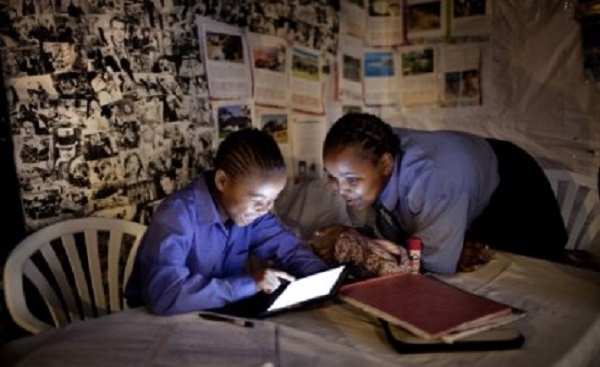Zambia introduced E-Learning as a way for students to continue learning from home, during the partial lockdown, which resulted into schools closing.
With this move, the government hoped the learning gaps caused by the closure would be bridged.
But while the initiative has been lauded by most of the citizenry, it has ended up leaving some students behind, as not all are able to access the technologies or channels being used to deliver lessons.
The communication tools being used, include internet and a TV channel, which can only be accessed by purchasing internet bundles or paying for cable TV, which some households from underprivileged backgrounds and most in rural areas cannot afford.
“I have seen that there have been a number of e-learning platforms which the Ministry of Education and other partners have come up with.
My worry and question is that, how are learners or pupils in rural areas going to access such online platforms?” Kasonde Tim Kasolo, a Lusaka-based Information Technology Specialist, wonders.
Available Communication Tools Not For All
Mary Namfukwe, a boarding school student in Rufunsa, east of Zambia’s capital, Lusaka, says the TV channel is not covering all students.
“Not everyone is having access, so it’s quite unfortunate and it’s not helping us in anyway,” Namfukwe observes.
A number of households in rural areas don’t have television sets or electricity to turn them on.
As of 2018, the rural population of Zambia, accounted for over 56 percent of the 17 million plus, inhabitants. Out of those rural residents, only 2.66 percent had access to electricity, according to the World Bank.
Those who have access to TV and electricity, may still need to choose between paying for cable TV, where the channel in question falls, or other necessities such as food, with most bound to settle for the latter.
For lessons delivered through internet, a number of lectures, especially those involving tertiary education, are livestreamed or/and downloaded by students as large documents from online spaces, such as Google classrooms, as Alick Mvula, a student in Lusaka, observes.
This requires a lot of bundles, which are expensive, hence those who don’t have enough funds to buy them, struggle or fail to keep up.
Students Call for Quick Solutions
“We need the price of data bundles to be reduced,” says Mvula.
Namfukwe feels it’s better for schools to just re-open, so that students can catch up with missed lessons. This is despite there still being partial lockdown in place and a sharp increase in the number of COVID 19 cases in the country.
“The best thing is just that we go back to school and we continue learning, we just observe the key measures to [protect] ourselves from COVID 19,” she reckons.
The Ministry of Education is aware of these challenges and its representatives say they are looking into ways of addressing them.
The suggestions by some citizens on how best these issues could be addressed, include, spreading the lessons to free channels and printing out the learning material for distribution in communities, as well as broadcasting them on all community radio stations.
They also advise the government against rushing to introduce initiatives that use technology, while forgetting the people who need help the most.
Source: Africafeeds.com



